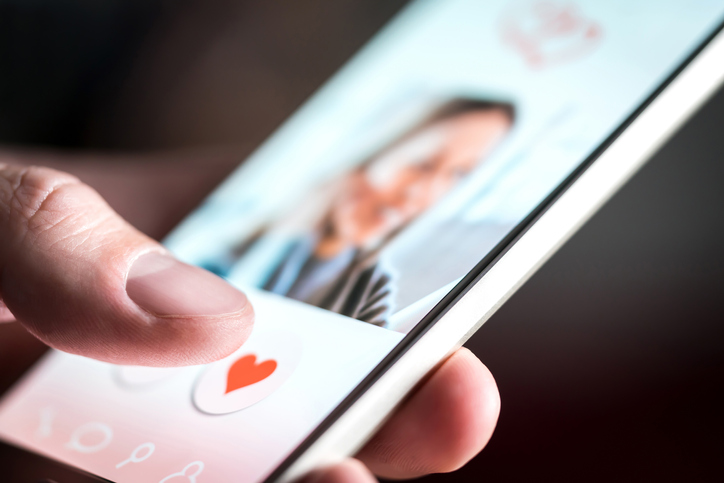Dating apps like Tinder, Bumble, and Hinge are increasingly more popular, including amongst travelers. Users report that in addition to facilitating dates in unfamiliar places, these apps can be an excellent way to become more familiar with their destinations. Risk managers and travel administrators should take the popularity of dating apps into account when educating their travelers about safety and security overseas.

While the vast majority of dates and meet ups arranged using dating apps are incident-free, there have been some tragic occurrences that remind people of the risks associated with using these apps, particularly in foreign countries. In one notable case in December 2018, a young woman from the U.K. was killed on a first date in New Zealand after using a dating app and meeting up with a local man. Unfortunately, as dating apps have become more popular in recent years, crime associated with dating apps has also increased. A recent Sky News report found a 382% increase in reported crimes related to online dating during the five-year period between 2011 and 2016 in the U.K.
These tragedies underscore several inherent vulnerabilities for dating app users overseas, namely that users are meeting with strangers in unfamiliar settings. To reduce the risk of becoming a victim on what should be a fun outing, administrators can share a number of best practices with their travelers to help shore up these vulnerabilities. To begin with, dating app users should familiarize themselves with their intended dates. Users can request to follow or friend their matches on other social media platforms like Instagram or Facebook. This allows them the opportunity for a basic degree of vetting. How does the person present him or herself, and are there any potential red flags (which could include any offensive posts, aggressive language, or any kind of threatening or erratic behavior)? While only so much can be gleaned from cursory checks of social media, this can certainly provide a degree of insight and perhaps make the person less of a stranger. Additionally, users should take time to chat with the person either using the dating app or via text before the first date. They should pay attention to the behavior of their intended date and clarify their expectations for the meetup beforehand.
Travelling in an unfamiliar location can be challenging enough, let alone dating in a culture that might be unfamiliar. This is why those looking to meet up with matches in foreign countries should familiarize themselves with the location where they intend to meet their match, as well as the local dating culture. For the physical location, if in a new, unfamiliar city, travelers can research and pre-select areas or specific venues for a first meetup. Look online, ask friends, or even ask the front desk staff about safe public spaces that would make for a good date spot. If the match offers a place of their own choosing, as might be likely if they know the traveler is new to the area, use the same methods to vet the rendezvous location. Is it a well-rated restaurant or bar? Does it seem like it’s in a safe neighborhood? Crucially, users should determine beforehand how they will get to and from the date. Is public transportation available and safe to use, or can the traveler easily get a ride home using a ride-hailing app or taxi?
After vetting their match and researching the local area, travelers planning to meet their dating app matches should inform friends, family, or even the staff at their accommodations of their intended plans. This might include sending the name, social media handles, phone number, and/or a screenshot of the match’s profile to trusted contacts before the date. Travelers might consider establishing communication windows of some kind to let contacts know when they will touch base or when they plan to arrive home. Some travelers might feel these practices are unnecessary or come from an abundance of caution, but in cases where travelers have gone missing in foreign countries, information about a person’s whereabouts can, and has, proven crucial to friends, family, and authorities searching for them. Often, especially when travelers are overseas alone, the practice of establishing communication windows with friends and family and keeping them aware of day-to-day movements and new acquaintances can be crucial in raising the alarm with local authorities should a traveler go missing.
During the actual date, travelers should be encouraged to continue to look after their own safety. They should limit the amount of alcohol they consume and watch their drinks closely to protect against the risk of drink spiking. Travelers should ensure their phones are sufficiently charged and keep them on their person. Above all, they should be encouraged to trust their gut. If anything seems off about their match, or if they begin to feel uncomfortable in any way, they should remove themselves from the situation promptly and use appropriate transportation to return to their accommodations. Travelers should also be encouraged to avoid letting their new date drive them back to where they are staying.
In many ways, safely using dating apps abroad involves many of the same precautions that users should be taking in their home countries. However, using dating apps while travelling overseas adds a number of unknown variables to the equation, and administrators should educate their travelers accordingly to reduce these unknowns and make this increasingly popular method of dating less risky for their travelers.
Want to learn more about travel safety and holistic risk management? Contact us today.


